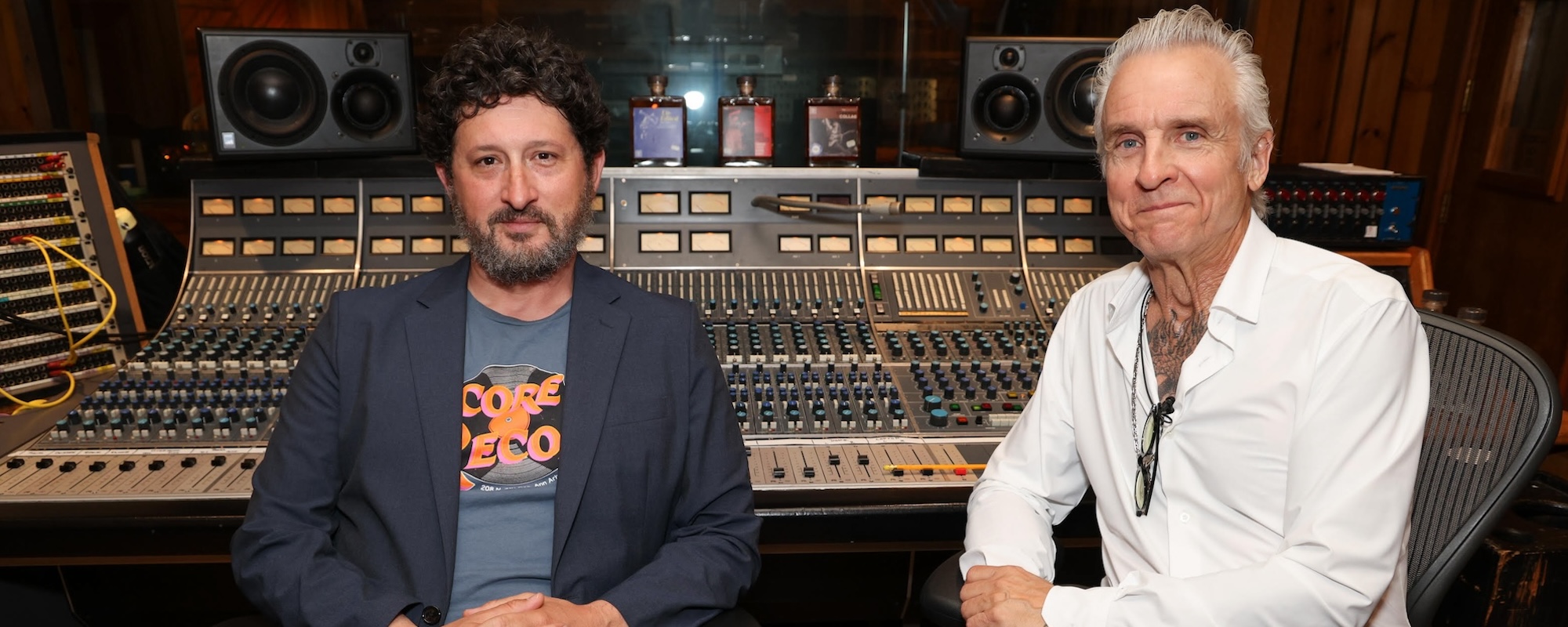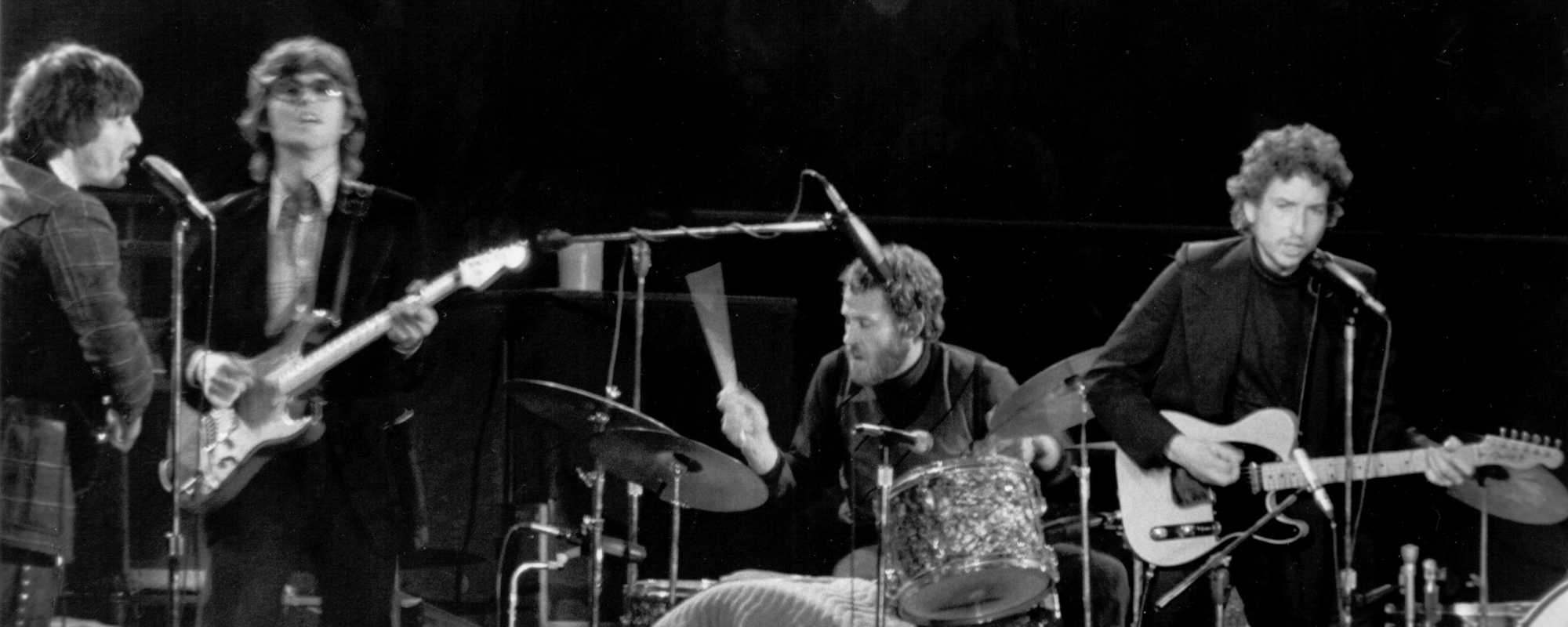“I started to realize that no one was coming to fix my problems,” Joe Jonas tells American Songwriter of the reflective state he’s found himself in, ready to release Music For People Who Believe In Love.
Videos by American Songwriter
The world is weighed down by problems. We all have our own set. Though they vary in severity from person to person, no one’s life is without the occasional bump in the road. It’s more than those personal problems, though. While you might be able to do enough soul searching to fix your own life, it doesn’t take too long of a scroll online to find that the world, as a collective, is feeling the strain of turmoil.
There are many ways to respond to this omnipresent weight. You could get angry, shut down, and succumb to apathy. Or, you could take the complete opposite approach…
Countless generations of artists and others in the touchy-feely crowd have presented the idea of love as a worldview. They serve up the seemingly simple idea of loving one another and ourselves on a platter, only for it to be hit out of their hands by the “realists” of the world. Despite the losing track record, Jonas has joined this long line of dreamers with Music For People Who Believe In Love.
‘Music For People Who Believe In Love’
The 14 tracks on this project–all with their different tones and flavors–add up to one idea: We could all use “a little bit of hope and happiness when things can be so heavy,” as Jonas tells American Songwriter. Music For People Who Believe In Love isn’t so much a commentary on “the times.” It’s more personally reflective. But that’s the great thing about love as a concept. It’s such a universal tool that it has endless applications. It’s infectious and has the potential to change tides.
Since 2019, Jonas and his brothers have been peddling music that is intent on having a good time. Apt given the title, the Jonas Brothers’ comeback record Happiness Begins saw the trio focus on the positives in their lives. They chose gratitude when it’s so easy to air grievances. The follow-up, The Album, is similar in sentiment. That 2023 release consisted of 12 sun-soaked happy pills. Needless to say, there is a theme developing in the Jonas-sphere.
Music For People Who Believe In Love follows this trajectory. When discussing the album, Jonas mentioned “gratitude” several times. Gratitude for his career, gratitude for his collaborators, gratitude for his fans, gratitude for fatherhood. The list goes on. But that gratitude didn’t come easy.
Jonas nods to his personal demons on this record a fair few times. He candidly speaks (albeit keeping it lighthearted) about having to push through his “saddies” on “Work It Out” and gets vulnerable about his relationship with himself on “My Own Best Friend”. These themes lead to songs that find Jonas on the other side of the struggle. There is a robust story told on this record–one that reflects the mixed emotions Jonas himself felt while creating it.
“I want you to feel a little uncomfortable,” Jonas says of this record, specifically the opening instrumental “Woven”. “I want you to feel relief, heartbreak, and healing.”
“Woven” is a strong indicator of what’s to come on the rest of the project. The intro quickly cycles through a range of sounds. By the end, it has erupted into an overwhelming cacophony, which breaks into a simple melody just as it’s about to become too much. “It felt like what I was going through personally, and I wanted to be able to share that through the music,” Jonas says.
It’s a heady piece of music for a pop album and borrows elements from several genres. But that’s what sets this record apart from anything else you’ll hear this year.
Music For People Who Believe In Love is not just a different album for today’s popscape, it’s a different album for Jonas, period. There are some songs on this record that listeners would be forgiven for mistaking for another artist. While there are conventions from his career that he can’t avoid, this album lives in its own world, set apart from his previous releases.
“Putting myself out of my comfort zone was key for me,” Jonas says, stating the obvious when considering the broad strokes he paints on this project.
Collaborations Only Make Sense for an Album Like ‘Music For People Who Believe In Love’
Jonas credits the diverse sound of this record to the collaborators he picked to work on it. From songs featuring alt-country maven Sierra Ferrell to fellow pop singer Lewis Capaldi hopping in the writer’s room, Jonas wasn’t stingy when it came to sharing studio time. Having a number of creative voices helped to give this record a unique spin. Few albums will give you a twangy mid-tempo track and then turn around and give you an 80s-tinged pop anthem.
Notably, Jonas duetted with his youngest brother, and the only non-Jonas Brothers member out of his siblings, Frankie. The two duet on “Velvet Sunshine”. When asked if it’s odd to be a spectator to the beginning of someone’s career after having played the game for so long, Jonas says he prefers to take the hands-off approach.
“He’s on his own journey,” Jonas says of Frankie. “I want to support him, but I also don’t want to give him too much advice.”
We’re sure there is a “leading by example” element to their collaborative studio time that will no doubt shape the youngest Jonas’ music career.
Despite his many collaborators, this project is Jonas’ through and through. He has many albums that he believes the fans have ownership over now. “Their songs,” Jonas says of his older material. “Their music, their memories.”
But this project serves a different purpose. Jonas, a follower of Rick Rubin’s “the audience comes last” ideology, has focused on what’s going on inside his head instead of anticipating reactions.
“It’s important to remind yourself that you’re creating something that’s telling your story,” Jonas says.
Because he was laser-focused on this goal, this album came quickly to Jonas, which is unlike any other project, he says. “There are times when it is definitely overthought,” Jonas admits. “This happened quickly, which was definitely a first.”
There is a sort of frenetic, improvisational energy to this album. It darts from one idea to the next, mimicking a stream of consciousness. Because of this, the listener gets a real sense of Jonas’ emotional journey over the last year or so.
Despite his personal goals with this album, Music For People Who Believe In Love is a relatable project. What makes it so accessible is the lens Jonas tells his story through. As said earlier, love is a universal tool. Jonas filters his lyrics through it to soften the edges. Heartbreak turns into redirection. Sadness becomes temporary. Happiness becomes an apathy-shattering force. The effect of this? Every listener walks away with a little less doom and gloom hanging over their heads.
“It’s a journey that everyone should walk through on their own,” Jonas says of the state of mind fans should be in when pressing play on this record. And this really is an album that will meet you wherever you are. There is, of course, something for those trying to find a positive outlook, but there are also songs for those who have already won that battle. Songs like “Honey Blonde” and “You Got The Right” are like little treats at the end of a long, hard day.
It may not be an explicitly socially conscious record, but the effect of a collection of songs this hopeful can have similar effects. “I hope everyone feels the love on this album,” Jonas says. We think it would be hard not to.
Music For People Who Believe In Love isn’t an album for the cynics of the world. To Jonas, this project is a challenge to “shake yourself out of a situation.” While that might seem like a big ask for a pop album, this powerfully positive project might have just the right sentiment to be able to pull it off. If Jonas can walk away from some of the problems he dissects in these songs with such an outlook, we might all do well with following his example.
Photo Credit: Gleeson Paulino/umusic













Leave a Reply
Only members can comment. Become a member. Already a member? Log in.